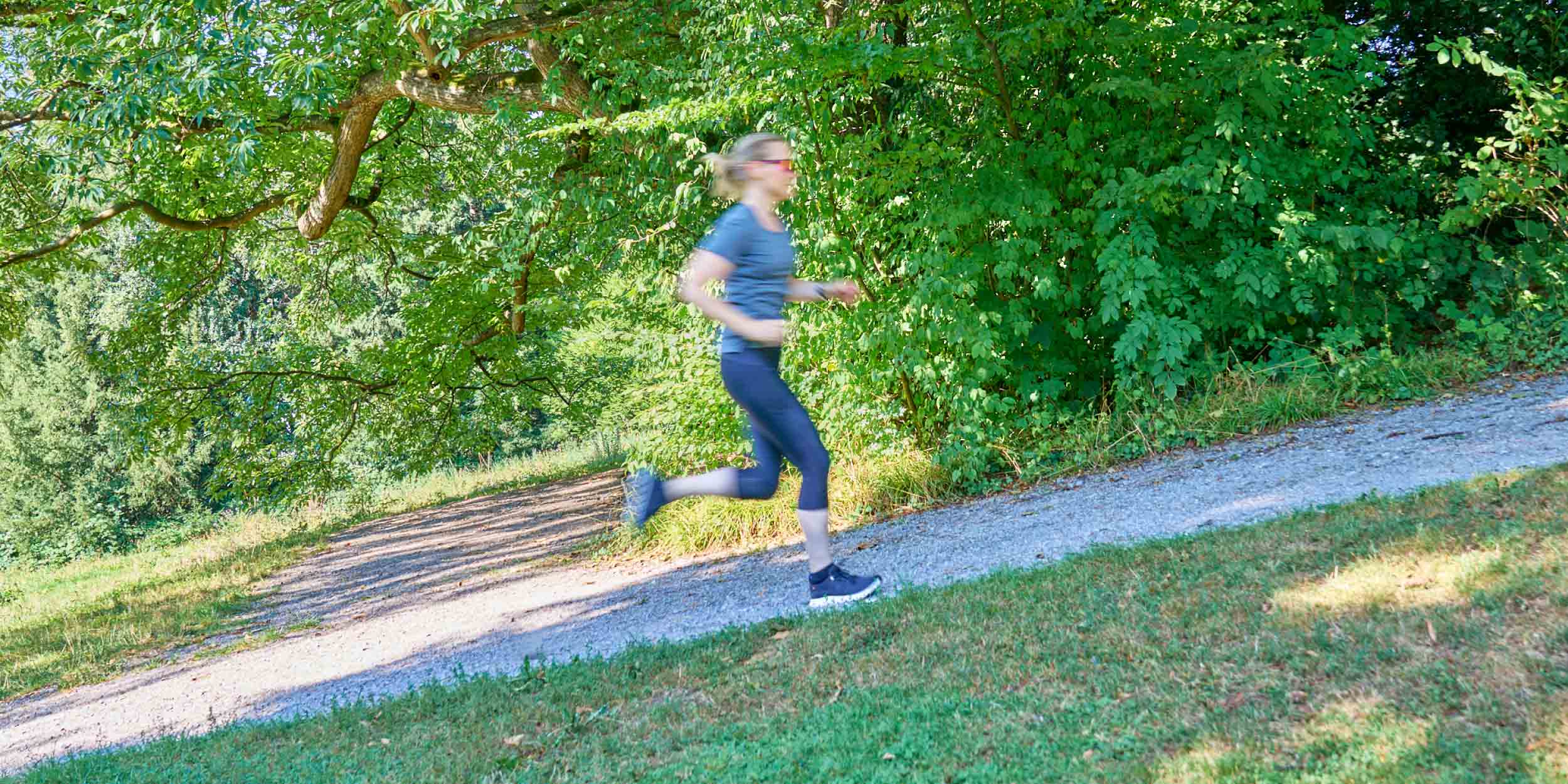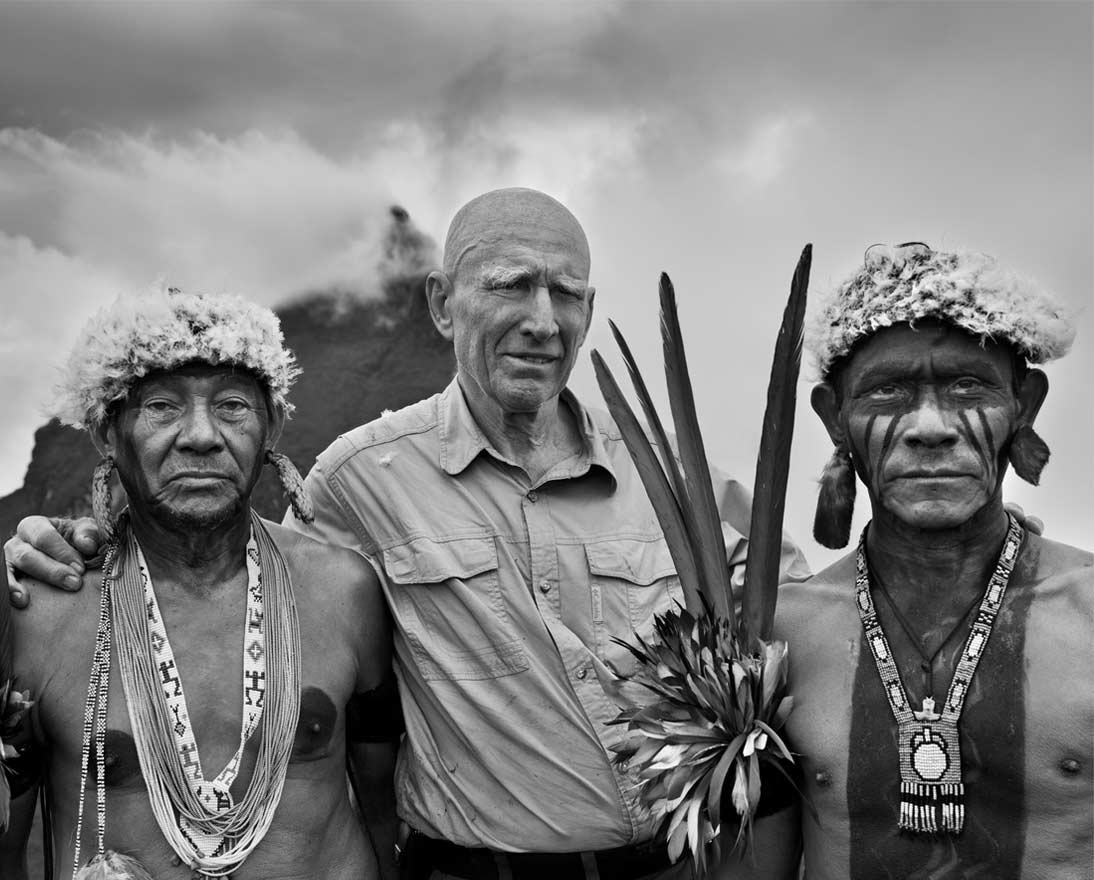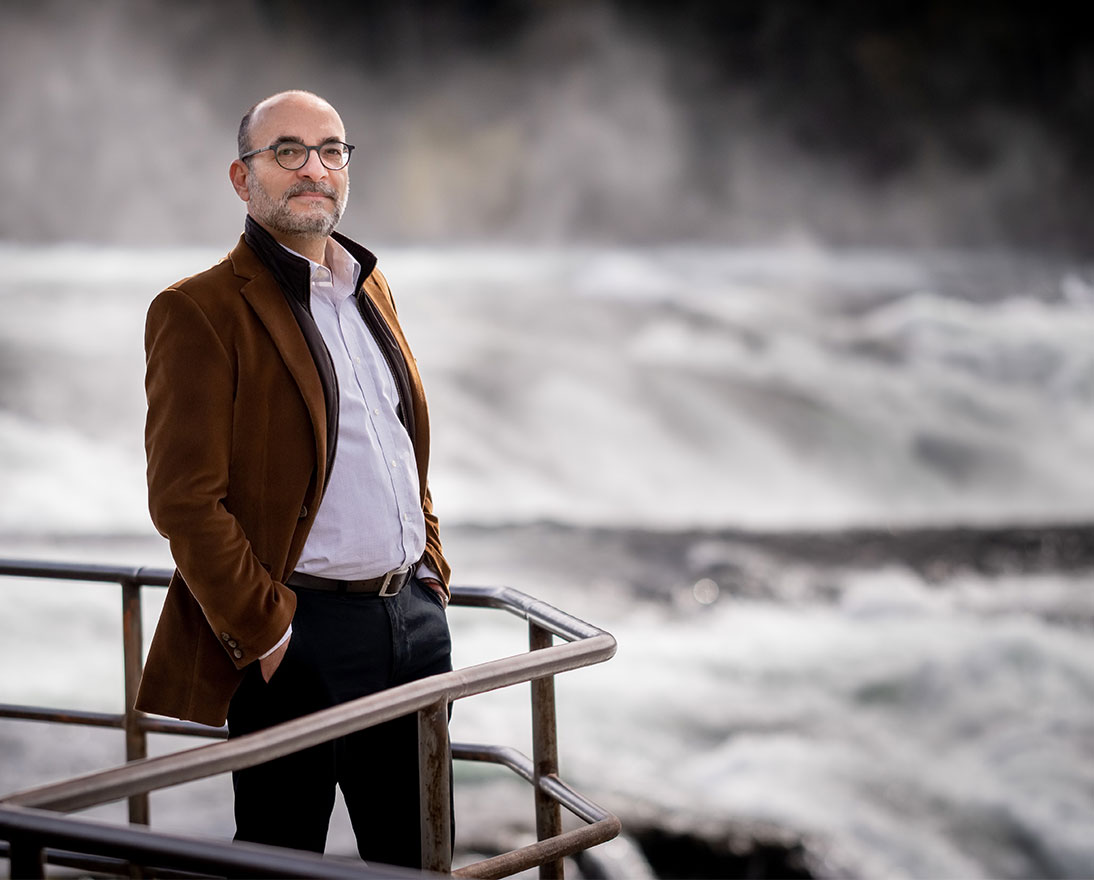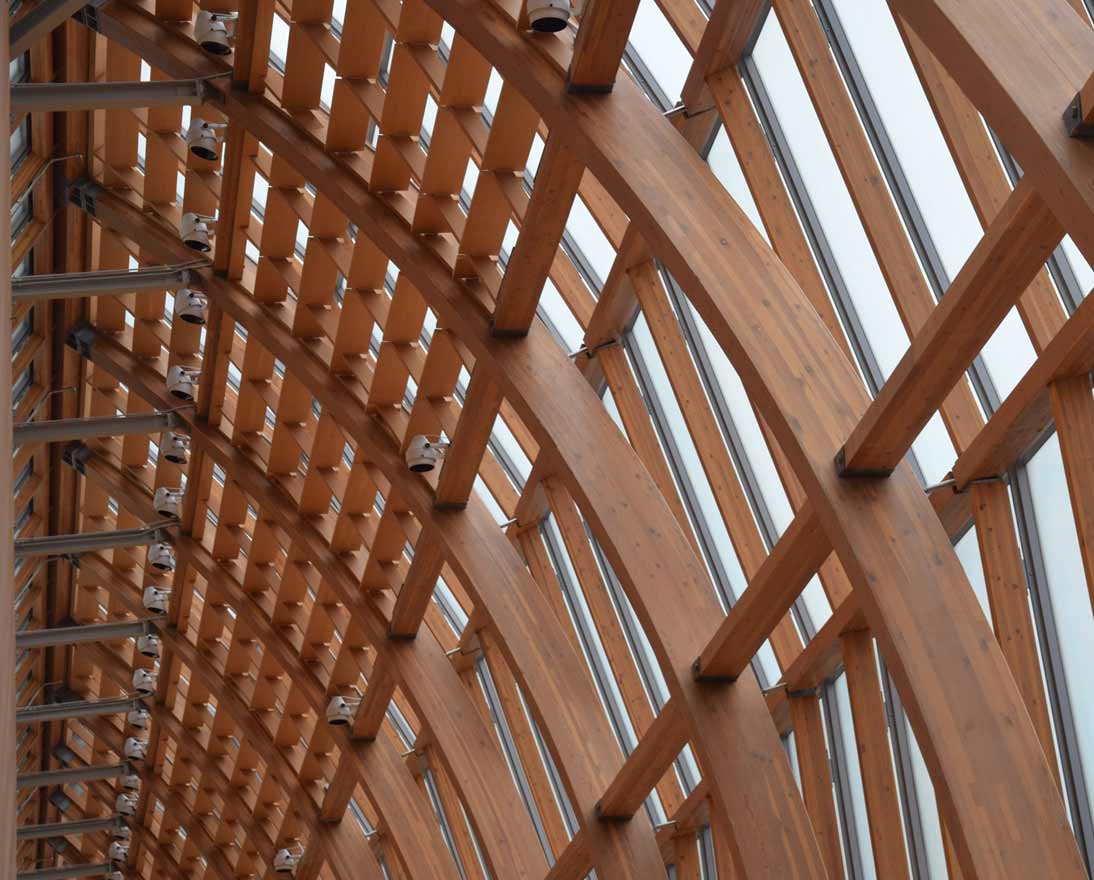Climbing new heights: How Linda Freiner is driving Zurich’s climate transition
SustainabilityArticleSeptember 20, 202410 min read
Zurich’s Chief Sustainability Officer – and resident long-distance runner – has had the arduous but rewarding task of aligning various stakeholders on the company’s path to net-zero. Fortunately, that path is a marathon, not a sprint.
Linda Freiner loves mountains. She was raised in the mountains. She thrives in mountains. For Freiner, Zurich Insurance Group (Zurich)’s Chief Sustainability Officer, mountains are meditative. They bring her closer to nature and are where she witnesses climate change close up. Mountains represent challenges, too. She skis down mountains in the winter; runs up mountains in the summer – something she apparently considers fun.
“I’ve always enjoyed a good challenge,” she says on a recent late-morning in the leafy Rieter Park, with Lake Zurich just below and the distant Alps, hazy today, framed behind her.
And she hasn’t had to deal with a greater challenge – nor a mountain high enough, you can say – than coordinating and leading Zurich’s first climate transition plan, which has been a large, complex and sensitive stakeholder management process across the business.
“This has been at the core of what I’ve done for the past year,” says Freiner, decked out in running gear as she often hits the gym or runs up Uetliberg, the city’s local mountain, at lunchtime. “And to articulate how we’re going to achieve the net-zero ambition that we set in 2019. It was easy to make the commitment, now we have to execute….And not just the net-zero targets, but also as to what our role is as an insurance company, and where are we going to support, and where are we going to change. Zurich insured the industrial revolution and all the technologies and changes in society that came with that, and I see clear parallels in the green transition today. So we need to be well-placed.”
She now walks slowly on one of the park’s pebbled pathways toward Museum Rietberg. “At the beginning, we made a few key decisions around exclusions, of what we’re stepping away from, but actually that’s not what’s going to drive this. We can’t just step away. We have to step in, and we have to step up. It’s about what are we going to do more of….How are we going to work with companies and understand what their transition plans look like, and what are the products and services they need from us, what are the investments they need. So it’s really a pivotal point. And I think traditionally we have been less vocal externally about sustainability than some of our peers, to some extent consciously, because we really wanted to back it up with actions.”
Linda in Lapland
Linda Freiner was born and raised in Kiruna, Sweden, an iron-ore mining town in the northernmost reaches of Lapland, deep in the Scandes mountain range. The country’s highest massif – the 2,100-meter Kebnekaise – is a snowball’s throw away. Today, she sees the impact of climate change when she returns. “When I was young,” she says, “we would finish school in June and there could still be snow and no leaves on the trees. We used to have eight months of winter, and now it’s seven or six months. We never had 30-degree days in summer, and now we do.”
Kiruna is the home of many notable Swedish athletes, and Linda grew up immersed in a variety of sports – her father was a teammate of eventual NHL star and Hockey Hall of Famer Börje Salming – but she excelled in skiing: slalom, super G and downhill. She even competed against Anja Pärson, a future World Cup champion and Olympic gold medalist. “I was a pretty good skier,” Freiner says, “but she was in a league of her own.”
At 17, she spent a high-school study year in Grenoble, France, at the foot of the Alps. Upon her arrival, which incredibly the school had completely forgotten about, she called her mother from a phone booth and said she wanted to quit and come home. Give it a week, her mother said. She did, and then gave it another week, and one more after that until she persevered. “It was a life-changing moment,” Freiner says. She returned to Sweden to get her master’s degree at the Stockholm School of Economics, and remained in the capital, where she launched her career in finance and consulting. After a few years, though, she was ready for a change. “Stockholm wasn’t for me,” she says and smiles. “There are no mountains.”
She moved to Switzerland in 2007 – “I wanted to move back to the Alps” – to work for the World Economic Forum as an associate director and head of financial services partnerships. She got to know Zurich Insurance while working on the Global Risks Report. “I think growing up in nature and already seeing the effect of climate change has also had an impact on the career choices I’ve made,” she says.
That was 2012 and the beginning of Zurich’s corporate responsibility strategy. She was intrigued by the company and joined Zurich as a program manager in 2013. It’s been quite the journey ever since, for Freiner and the company, as the topic of sustainability has become more important – and with that her role.
Fundamentally, what I believe, is that business has a bigger role to play in society than generating shareholder value.
During that time, we’ve gone from COP 19 to COP 28. In 2015, there was the monumental Paris Agreement, which set the net-zero direction. And by 2016, Freiner was named as Group Head of Sustainability at Zurich. When she got the new role, she recalls, a senior executive at the time said to her, “Well, Linda, the easy stuff has been done. Are you up for the challenge?”
Maybe he didn’t realize to whom he was posing the question. Freiner may be unassuming on the surface, but she knows sustainability inside and out. On top of that, she’s determined and mentally tough, thanks in no small measure to her interest in long-distance running that she developed after she moved to Switzerland, where she became an ultra-marathoner.
“I took the challenge as an opportunity,” she says without any lingering animus. “I spent a lot of the time back then really trying to understand the company better and to understand how decision-making works. And I wanted to make sure I could drive sustainability in a transformative way and actually say, ‘You know, what got us here is not going to take us any further if we want to be around another 150 years. So we’re going to have to change the things we do.’ ”
Since then, she and her husband had two children. When she explains her job to her young sons, she puts it in the context of – what else? – the mountains. “We discuss climate at home and how it’s getting warmer, and that mom is trying to do the little she can to help out, so we can continue to enjoy the outdoors and make sure you can be out in the mountains and experience glaciers like I have. And that everyone has to do their part.”
But, she adds, “I also want to be very conscious of not creating climate anxiety with them at an early age, which is an increasing problem, and not to say that we’re out of hope. We are very cautious in how we talk about it.”
Even with colleagues, customers and the public at large, she’s not preachy or self-righteous about her sustainability worldview. She’s well-aware that she works not at a nonprofit, but at a for-profit company; she studied business after all. She doesn’t appear as if she’d scold someone for eating this and not that. She’s a pragmatist. She just feels that industry as a whole can do more.
“Fundamentally, what I believe, is that business has a bigger role to play in society than generating shareholder value,” she says. “I see that we have fantastic people at Zurich, with great skills, and we’re experts at managing risk. I feel as if we’re in the perfect position to help society manage our environmental and social risk and doing that through our products and services, then through our investments, and how we operate as an organization. So I always try to connect the strengths of Zurich with the needs of society.”
‘I’m not a lunch networker’
Her own quiet focus and authority is matched by a genuine warmth. You get the impression that she actually sees people. This may, in part, be down to her roots. Although she loves mountains, she also loves – true to Scandinavian form – flat hierarchies. “It’s true, Sweden does have flat hierarchies – or flatter, more equal,” she says. “And it’s also a very consensus-driven country. I don’t care about hierarchies. My motto is, try to be nice to everyone. What goes around, comes around, in both professional and personal lives. And think about how you want to be remembered – that’s something really important to me.”
She prefers those power runs to power lunches. “I block out my lunches for training time,” she says with a wry smile. “What I sacrifice are the social lunches. I’m not a lunch networker.”
The workouts are a well-being issue for her. “I wouldn’t be able to do this job if I didn’t have the physical strength I have,” she says, as she walks back down from Rietberg toward the office and the gym. “Because it holds me up, and it keeps me moving forward when the world is not moving as fast as we need it to when it comes to climate change.”
Another adage she tries to adhere to is this: Seek to understand and then to be understood. That is, listen first, which she admits she didn’t always do. She tells the story of one of her first performance reviews early in her career at another company when she was told she was too assertive and that she had to smoothen out the edges. “It’s something I’ve really learned from a number of leaders at Zurich, who are really good at this – at having their opinion but listening first. I think that’s a core skill.”
About her tenure at Zurich, not just over the past year with the transition plan but over the nearly 12 she’s been with the company, she says, “Of course, it’s been an extremely rewarding journey, otherwise I wouldn’t be here today.” In early 2024, Freiner was named as Chief Sustainability Officer, reporting into Group CEO Mario Greco.
She realizes some employees might be less-than excited about the lack of PET bottles in the office or restrictions on flying, but, she says “it’s all part of something larger. If we don’t start at home with our own emissions, which are small on a global scale, then actually it’s impossible to then be credible out in the marketplace. You have to create a culture of sustainability. That is a key part of the process.
“In the end,” she concludes, “it’s not me driving sustainability at Zurich, it’s everyone at Zurich, every day, doing their part. You don’t have to have sustainability in your title to be a sustainability professional. You just need an interest and a passion for sustainability. You need to care. That’s how I see it.”



